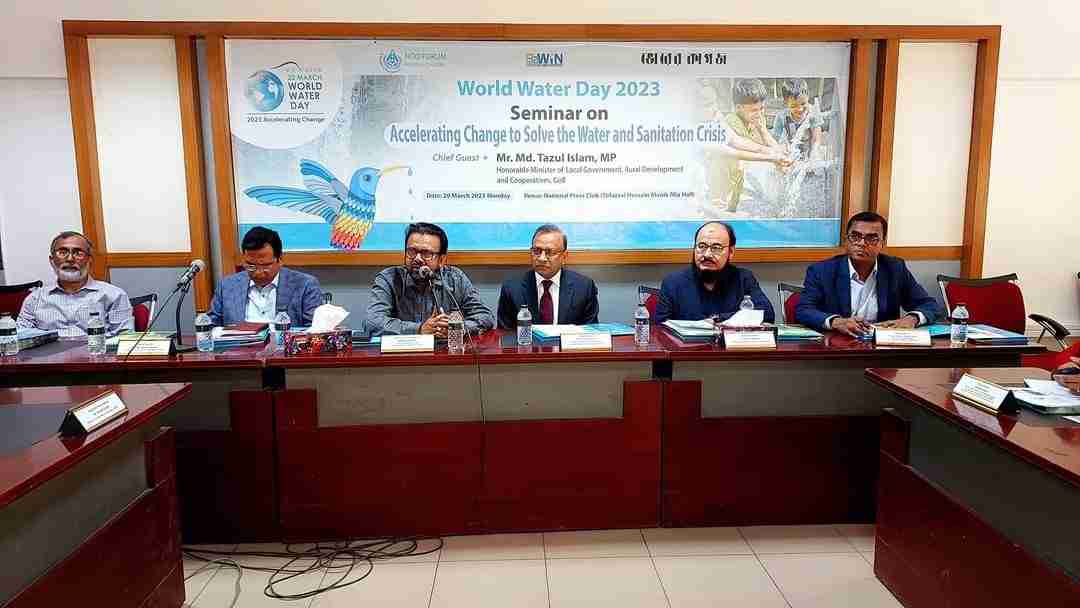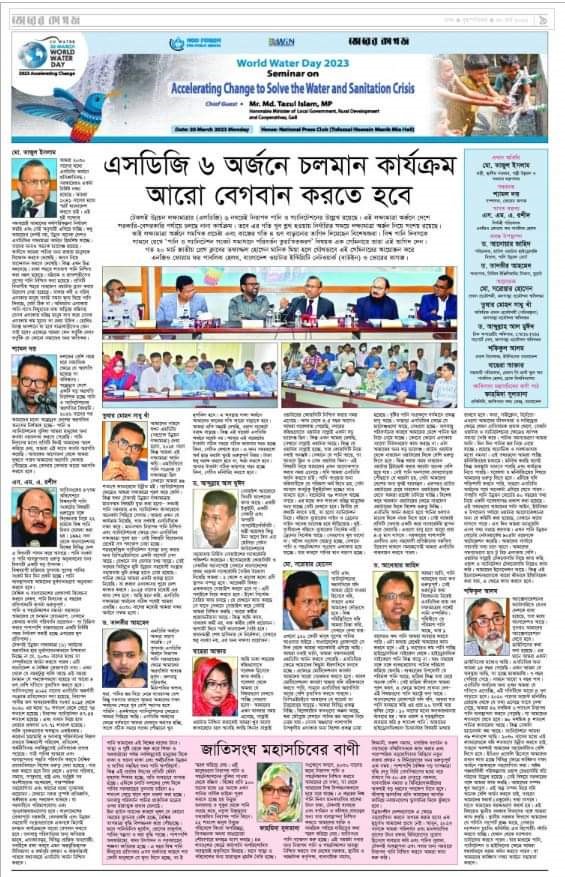Seminar on: Accelerating Change to Solve the Water and Sanitation Crisis

Md Tajul Islam, Local Government, Rural Development, and Co-operatives Minister was the Chief Guest at the seminar. Shyamal Dutta, editor of the Daily Bhorer Kagoj and Secretary of the National Press Club moderated the event. S. M. A. Rashid, Executive Director, NGO Forum & Member of BAWIN Steering Committee gave the welcome speech.
Two Keynote paper were presented in the seminar by Dr. Anwar Zahid, Director of Bangladesh Water Development Board and Dr. Tanvir Ahmed, Director of ITN-BUET.
Md. Sarwar Hossain, Chief Engineer, Department of Public Health Engineering, Additional Chief Engineer Tushar Mohan Sadhu Khan, Dr. Abdullah Al Muyeed, Chief Operating Officer (CWIS support cell), UNICEF WASH Expert Shafiqul Alam and Bashira Akter, Assistant Director of BRAC University spoke in the seminar. Government representatives, CSO/NGOs, BAWIN members, media representatives were present in the seminar.
Speakers discussed the issue of water and sanitation services in the country and highlighted the need for sustainable development and innovative solutions to overcome future challenges. They said that the installation of more water points in hard to reach and resource-constrained areas to meet the requirement of easy accessibility and reduce inequality. The speaker also spoke about inequalities in resource allocations. 79% of funds for WASH is allocated to urban areas and only 21% to rural areas. But the public sector budget should be spent catalytically and strategically, creating incentives for efficient, sustainable service provision and prioritizing reaching the unserved. They suggested speeding up the existing activities in the country to ensure the availability and management of water resources and sanitation for all.
"We are committed to achieving SDGs by 2030. But we also have a specific goal for Bangladesh. We want to make a Smart Bangladesh by 2041. With the combination of these two goals, we are setting our plans and moving forward accordingly," said Md Tajul Islam, LGRD&C minister. He thinks that the price of water, gas and electricity should be increased in the elite areas and distributed at a lower price in the areas where the poor people live, including the slums.
